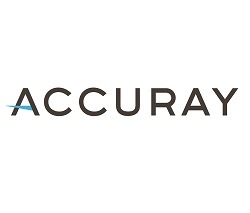 Accuray has received approval from the Japanese Ministry of Health, Labor and Welfare (Shonin) to market the CyberKnife robotic radiosurgery system for the treatment of trigeminal neuralgia (TN) in Japan.
Accuray has received approval from the Japanese Ministry of Health, Labor and Welfare (Shonin) to market the CyberKnife robotic radiosurgery system for the treatment of trigeminal neuralgia (TN) in Japan.
The system is currently used to treat TN in the USA, EIMEA (Europe, India, the Middle East and Africa) and other parts of the world. With this recent Shonin approval, more TN patients will have access to a high-precision radiosurgery treatment typically delivered in just one outpatient procedure, according to an Accuray press release.
“As a neurosurgeon, I have seen many people suffering from trigeminal neuralgia,” said Hiroshi Takahashi, general director of Kasugai CyberKnife Rehabilitation Hospital (Yamanashi, Japan). “Some of them were worried about medication that worked initially and gradually became ineffective, and others were disappointed with the recurrence of pain despite choosing surgery as a potentially curative option.
“For these people, SRS [stereotactic radiosurgery] may be an extremely useful treatment method. I am very pleased about this recent CyberKnife approval. The system delivers SRS treatments with accuracy and precision, and with the potential for long-lasting results. I believe it will be an important option for our patients with trigeminal neuralgia.”
The Accuray press release details that TN is a chronic pain condition affecting the trigeminal nerve that carries sensation from the face to the brain. Patients can experience excruciating pain in the areas of the face where the branches of the nerve are distributed including the upper and lower jaws, scalp, forehead, eyes, nose and lips. TN occurs most frequently in people over the age of 50 years and is more common in women than in men.
People diagnosed with TN require long-term medical care that usually begins with medication to block the pain signals sent to the brain. Over time, however, some medications become less effective, or patients experience unpleasant side-effects, the release adds. For these patients, injections, surgery or radiosurgery may be required.
Data published in Neurosurgery indicate that SRS treatments delivered with the CyberKnife system result in rapid and long-lasting pain relief, with 93.5% of TN patients experiencing relief after three weeks and 76% maintaining stable pain control for three years after the first treatment. Following Japanese health insurance system reimbursement approval, the CyberKnife system will be available as a new treatment option for patients experiencing this potentially debilitating condition, the release also states.
“It is with great pride that we announce the expansion of the CyberKnife system’s approved indications for use in Japan to now include trigeminal neuralgia,” said Suzanne Winter, president of Accuray. “This approval reinforces our team’s dedication to providing our customers with innovative products that expand the potential to use radiation in a new field of application, enabling them to enhance the quality of patient care and improve the patient experience. The system provides a proven, non-surgical option for treating trigeminal neuralgia without a fixed frame that must be secured to the patient’s head to prevent movement, as required with other devices.”
The CyberKnife system was developed to treat intracranial and spinal conditions with SRS. The device’s functionality has significantly evolved, and it has become a premier, full-body robotic radiation delivery system that also enables ultra-precise treatment of a wide range of tumours outside the brain, including those in the liver, lung and prostate, the release adds.
The system features a linear accelerator directly mounted on a robot that moves and bends around the patient to deliver non-isocentric, non-coplanar radiation beams from potentially thousands of unique angles. The release concludes that this distinctive capability combined with the system’s Accuray-only Synchrony artificial intelligence (AI)-driven tumour tracking with dynamic delivery technology facilitates accurate, sub-millimetre, (ultra) hypofractionated treatments to tumours throughout the body in as little as 15 minutes.









